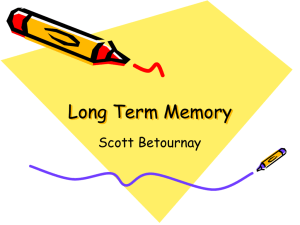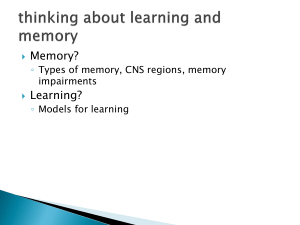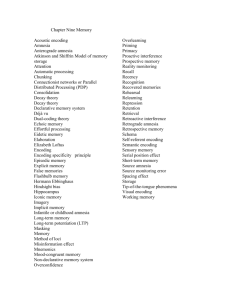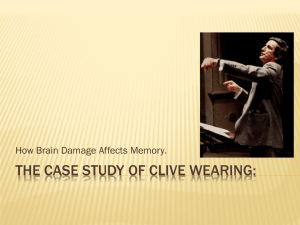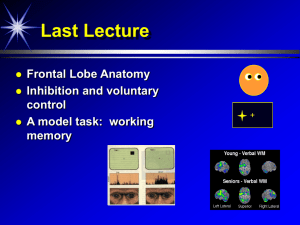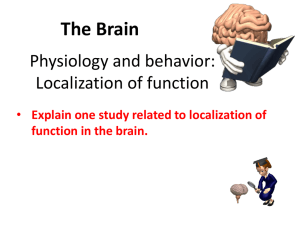Case Studies in Memory
advertisement
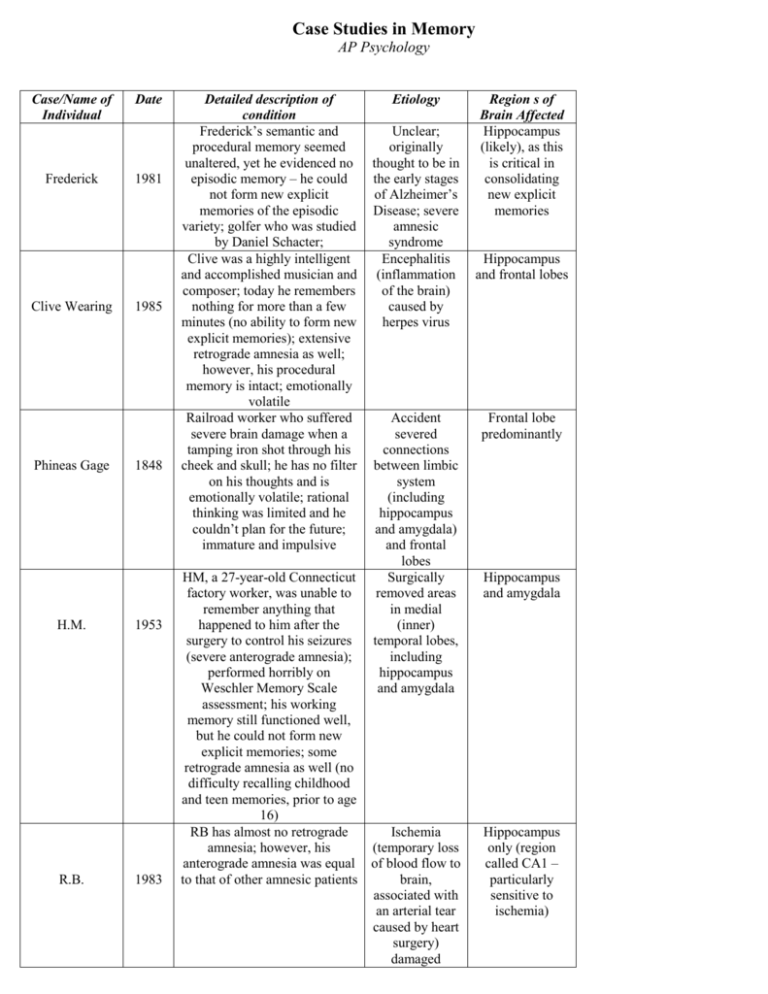
Case Studies in Memory AP Psychology Case/Name of Individual Frederick Clive Wearing Phineas Gage H.M. R.B. Date 1981 1985 1848 1953 1983 Detailed description of condition Frederick’s semantic and procedural memory seemed unaltered, yet he evidenced no episodic memory – he could not form new explicit memories of the episodic variety; golfer who was studied by Daniel Schacter; Clive was a highly intelligent and accomplished musician and composer; today he remembers nothing for more than a few minutes (no ability to form new explicit memories); extensive retrograde amnesia as well; however, his procedural memory is intact; emotionally volatile Railroad worker who suffered severe brain damage when a tamping iron shot through his cheek and skull; he has no filter on his thoughts and is emotionally volatile; rational thinking was limited and he couldn’t plan for the future; immature and impulsive Etiology Unclear; originally thought to be in the early stages of Alzheimer’s Disease; severe amnesic syndrome Encephalitis (inflammation of the brain) caused by herpes virus Accident severed connections between limbic system (including hippocampus and amygdala) and frontal lobes Surgically removed areas in medial (inner) temporal lobes, including hippocampus and amygdala HM, a 27-year-old Connecticut factory worker, was unable to remember anything that happened to him after the surgery to control his seizures (severe anterograde amnesia); performed horribly on Weschler Memory Scale assessment; his working memory still functioned well, but he could not form new explicit memories; some retrograde amnesia as well (no difficulty recalling childhood and teen memories, prior to age 16) RB has almost no retrograde Ischemia amnesia; however, his (temporary loss anterograde amnesia was equal of blood flow to to that of other amnesic patients brain, associated with an arterial tear caused by heart surgery) damaged Region s of Brain Affected Hippocampus (likely), as this is critical in consolidating new explicit memories Hippocampus and frontal lobes Frontal lobe predominantly Hippocampus and amygdala Hippocampus only (region called CA1 – particularly sensitive to ischemia) David Jane 1989 David’s verbal memory and ability to use and understand language had been obliterated; he possessed little memory for ongoing events and remembers virtually nothing of his past hippocampus Herpes simplex virus (while in Brazil) Left temporal lobes
